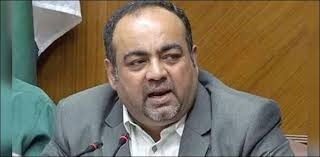
By our correspondent
KARACHI: Khawaja Izhar Ul Hassan, a senior leader of the Muttahida Qaumi Movement-Pakistan (MQM-P), has voiced serious concerns over a burgeoning paper leak scandal that has emerged within Sindh’s educational framework, particularly affecting medical board examinations. Speaking outside the Sindh High Court, Hassan revealed a troubling trend, noting that an alarming number of students—specifically 132 from a single institute—scored identical marks of 199, raising significant questions about the integrity of the examination process.
Highlighting the gravity of the situation, Hassan described the emergence of a persistent “mafia” responsible for leaking exam papers, a phenomenon that he claims has plagued the educational landscape for the past four to five years. He pointed to a disturbing pattern in which matriculation and intermediate examination papers have been compromised, with reports of these papers being sold for as little as 100 rupees at local photocopy shops. The latest allegations suggest that even the highly competitive medical board exams have succumbed to this same fate, undermining the credibility of the educational system.
Hassan’s comments follow numerous reports from distressed students in Karachi who have come forward, alleging systemic injustices perpetrated by the institutions meant to uphold educational standards. He specifically criticized Dow University for collecting a fee of Rs 8,000 per student, leading to a substantial total of Rs 100 million collected for the recent examinations, alongside over Rs 70 million designated for medical tests. Such financial practices, he argued, raise ethical concerns about the exploitation of students within a compromised system.
In light of these revelations, Hassan expressed gratitude to the court for its swift action in forming two investigative committees comprising members from the Federal Investigation Agency (FIA) and the Ministry of Information Technology (MIT). He urged these bodies to conduct a thorough investigation and report their findings within a strict timeline of 15 days.
Affirming his commitment to safeguarding the futures of affected students, Hassan vowed to hold both Dow University and the Pakistan Medical and Dental Council (PMDC) accountable for their apparent negligence. He further questioned the rationale behind medical colleges conducting their own examinations when established institutions, such as the Institute of Business Administration (IBA), are available to oversee this crucial process.
Concluding his remarks, Hassan underscored the MQM-P’s unwavering stance against any entity that seeks to jeopardize the educational aspirations of students. His passionate advocacy for accountability within Sindh’s educational system reflects a broader concern regarding the integrity of examinations and the urgent need for reform to ensure that such injustices do not continue unchecked.



